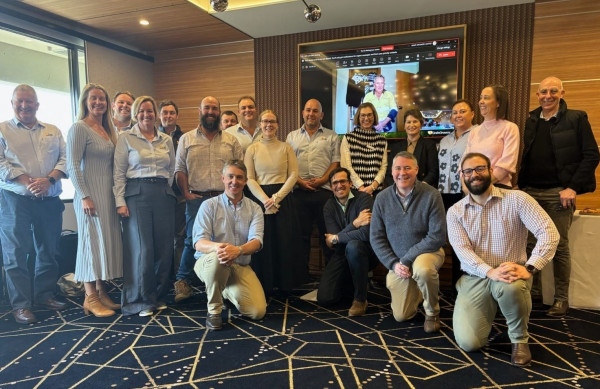THE National Policy Group is looking for southern region representatives covering southern New South Wales, Victoria and Tasmania.
Applications open later this year and you can track the opportunity at www.graingrowers.com.au
The second NPG meeting for 2025 was held in Canberra to discuss a range of policy issues impacting growers and their communities.
In the years following COVID-era disruptions to grain supply chains, and as indicated in GrainGrowers’ annual policy survey, farm inputs remain the most concerning on-farm issue for growers.
They are seeking greater transparency into input pricing and supply and the NPG discussed the need to improve transparency and accountability and endorsed a policy seeking to improve competitiveness in the supply of key inputs such as fertilisers and agricultural chemicals.
GrainGrowers has also developed a series of reports delving into the detail behind some of the most common farm inputs.
Genetically modified (GM) and gene edited (GE) grains were also discussed in the meeting.
While a significant technological advancement touted to boost farm productivity, regulatory and market access, implications of novel GM and GE technologies must be considered in depth prior to adoption.
The NPG stressed the importance of adhering to a science-based approach through Australia’s independent regulators and the need to ensure market confidence in the end product.
GrainGrowers will be developing material to assist growers with decision making in this space.
The meeting also featured presentations from several external stakeholders.
Representatives from Australian Crop Breeders joined the NPG and provided updates on end point royalties and changes to the system to ensure a fair, transparent and practical model which works for plant breeders and growers alike.
Representatives from Intergrain gave a presentation on their program to develop wheat varieties using new breeding technologies and discussed the opportunities on the horizon.
The Australian Strategic Policy Institute presented its National Food Security Preparedness Green Paper, prompting robust discussion around the fragility of Australia’s food supply chains and its exposure and readiness to respond to external shocks.
GrainCorp presented on the development of a domestic low carbon liquid fuels market, highlighting opportunities for the grains sector as a provider of low emissions feedstock, and the importance of domestic fuel production to Australian sovereignty.
Finally, the Department of Agriculture, Fisheries and Forestry provided an update on government policy priorities, noting a current focus on drought preparedness and response following the extreme conditions experienced in Victoria and South Australia.
The NPG continues to play a vital role within GrainGrowers’ policy development framework by ensuring grower voices can directly shape national policy.
















